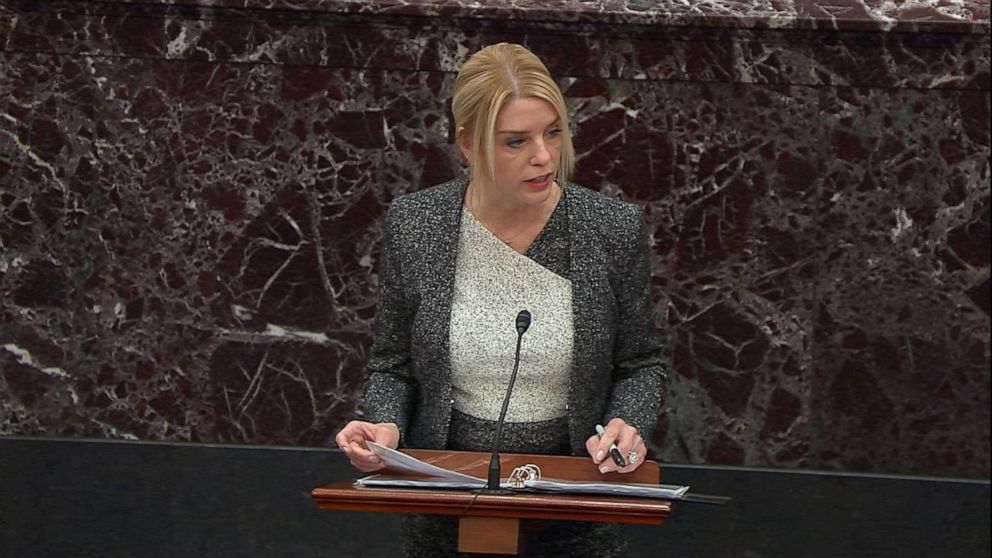Immigration Debate: Trump Explores Changes To Detention Appeals Process

Table of Contents
The Proposed Changes to the Immigration Detention Appeals Process
Currently, individuals facing immigration detention can appeal their detention through various avenues, including administrative appeals and, in certain circumstances, habeas corpus petitions in federal court. This process, while often lengthy and complex, provides a mechanism for judicial review of detention decisions.
The Trump administration's proposed changes aimed to significantly alter this system. Key proposals included limiting access to judicial review, streamlining deportation procedures, increasing the emphasis on expedited removal, and limiting bond hearings. These changes essentially sought to accelerate the deportation process and reduce the opportunities for immigrants to challenge their detention.
- Reduced access to judicial review: Proposed changes restricted the grounds for appeal and limited the ability of immigrants to challenge detention orders in court.
- Streamlined deportation procedures: The administration sought to expedite deportation proceedings, reducing the time immigrants spend in detention while awaiting resolution of their cases.
- Increased emphasis on expedited removal: Expedited removal, a process that allows for the swift deportation of individuals without a full hearing, was slated for expansion under the proposed changes.
- Limitations on bond hearings: Restrictions on bond hearings reduced the opportunities for detainees to secure release pending the resolution of their immigration cases.
Arguments For the Proposed Changes
Proponents of the changes argued that they would increase efficiency in processing immigration cases, reducing the strain on the overburdened immigration system. They claimed this would deter illegal immigration by making the consequences of unlawful entry more certain and swift. Furthermore, supporters emphasized that these changes were necessary to address national security concerns by expediting the removal of individuals deemed a threat.
- Increased efficiency in processing immigration cases: Faster processing times would free up resources and allow for a more efficient allocation of personnel within the immigration system.
- Reduced strain on the immigration system: A streamlined system would alleviate the burden on immigration courts and detention facilities.
- Deterring illegal immigration: The prospect of quicker deportation would, proponents argued, serve as a deterrent to illegal immigration.
- Addressing concerns about national security: Expedited removal of individuals deemed threats would enhance national security, supporters claimed.
However, critics countered that these arguments overlooked the potential for errors and the importance of due process. The emphasis on speed could lead to wrongful deportations, particularly for vulnerable populations.
Arguments Against the Proposed Changes
Critics vehemently opposed the proposed changes, arguing that they violated the due process rights of immigrants and increased the risk of human rights abuses. They highlighted the disproportionate impact on vulnerable populations, such as asylum seekers and refugees, who may lack the resources to navigate a complex and rapidly changing legal landscape. The lack of transparency and accountability in the proposed system also raised significant concerns.
- Violation of due process rights of immigrants: The restrictions on appeals and judicial review were seen as a direct infringement on fundamental due process rights.
- Potential for increased human rights abuses: The expedited nature of the process raised concerns about the potential for errors and mistreatment of detainees.
- Disproportionate impact on vulnerable populations: Asylum seekers and refugees, often facing trauma and lacking legal representation, were particularly vulnerable to the proposed changes.
- Lack of transparency and accountability: Critics argued that the proposed changes lacked sufficient oversight and mechanisms for accountability.
Relevant legal precedents, such as the Supreme Court case Zadvydas v. Davis, which addressed the indefinite detention of immigrants, underscore the importance of due process protections in immigration proceedings.
Potential Legal Challenges and Outcomes
The proposed changes faced significant legal challenges from immigrant rights organizations. Lawsuits were filed based on constitutional rights, including due process and equal protection claims. The potential for Supreme Court involvement remained a significant possibility, given the constitutional questions at stake. The outcome of these legal challenges would likely have a substantial impact on existing immigration laws and the future of immigration detention appeals.
- Potential lawsuits from immigrant rights organizations: Numerous organizations filed lawsuits challenging the legality and fairness of the proposed changes.
- Challenges based on constitutional rights: The core arguments centered on the violation of due process and equal protection under the law.
- Analysis of potential Supreme Court involvement: The potential for the Supreme Court to weigh in on these critical issues remained a significant factor.
- Impact on existing immigration laws: The outcome of these legal battles could significantly reshape the legal framework governing immigration detention and appeals.
The Broader Context of the Immigration Debate
The proposed changes to the immigration detention appeals process were inextricably linked to the broader political and social context of US immigration policy. Public opinion, heavily influenced by media coverage, played a significant role in shaping the debate. The proposals were part of a broader set of immigration enforcement measures implemented during the Trump administration, reflecting a stricter approach to immigration control.
- Relationship to other immigration enforcement measures: The proposed changes were part of a wider strategy to tighten immigration enforcement.
- Impact on public perception of immigration: Media coverage and political rhetoric influenced public attitudes towards immigration and the proposed changes.
- Political implications of the proposed changes: The proposals became a central point of contention in the political landscape.
- Influence of different interest groups: Business organizations, religious groups, and immigrant rights advocates played significant roles in shaping the debate.
Conclusion
The proposed changes to the immigration detention appeals process sparked intense debate, highlighting the complex interplay between national security concerns, due process rights, and humanitarian considerations. Arguments for increased efficiency and deterrence were countered by concerns about human rights abuses and the violation of fundamental legal principles. The potential legal challenges and their outcomes will significantly impact the lives of immigrants and the future trajectory of US immigration policy. Stay informed about the ongoing debate surrounding immigration detention appeals and the potential impact on the rights of immigrants. Engage in respectful dialogue and advocate for policies that balance national security with the principles of due process and human rights. Understanding the nuances of immigration appeals processes is crucial for informed civic engagement.

Featured Posts
-
 Kas Nutiko Dakota Johnson Kraujingos Plintos Nuotraukos Ir Paaiskinimas
May 10, 2025
Kas Nutiko Dakota Johnson Kraujingos Plintos Nuotraukos Ir Paaiskinimas
May 10, 2025 -
 Inquiry Into Nottingham Attacks Retired Judge Takes The Lead
May 10, 2025
Inquiry Into Nottingham Attacks Retired Judge Takes The Lead
May 10, 2025 -
 Epstein Records Concealment Allegation Senate Democrats Target Pam Bondi
May 10, 2025
Epstein Records Concealment Allegation Senate Democrats Target Pam Bondi
May 10, 2025 -
 Young Thug Teases Uy Scuti Album Release Date
May 10, 2025
Young Thug Teases Uy Scuti Album Release Date
May 10, 2025 -
 Serious Data Breach Illegal Access Of Nottingham Stabbing Victim Records By Nhs Staff
May 10, 2025
Serious Data Breach Illegal Access Of Nottingham Stabbing Victim Records By Nhs Staff
May 10, 2025
